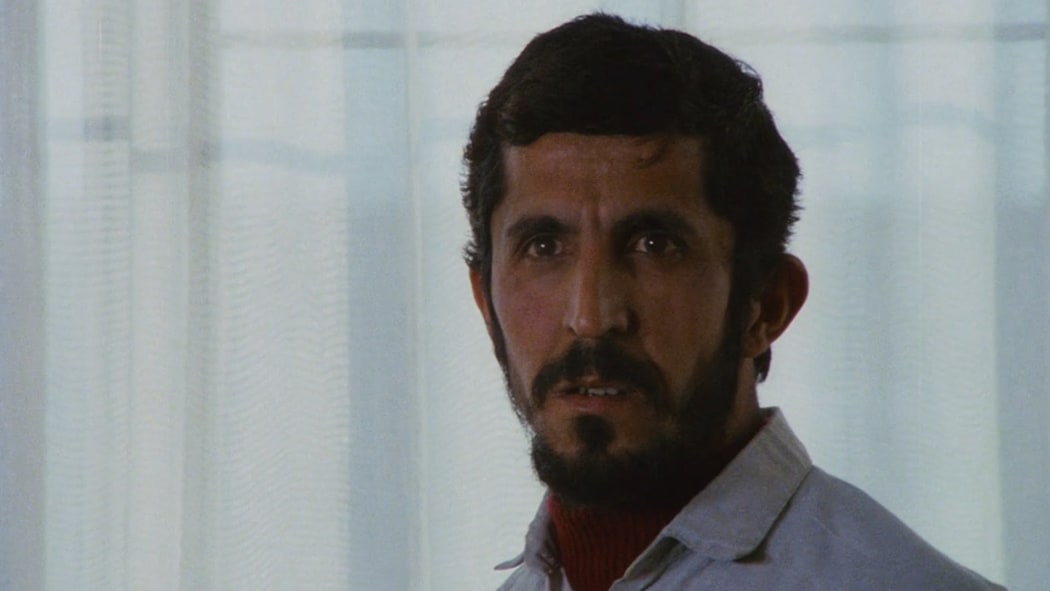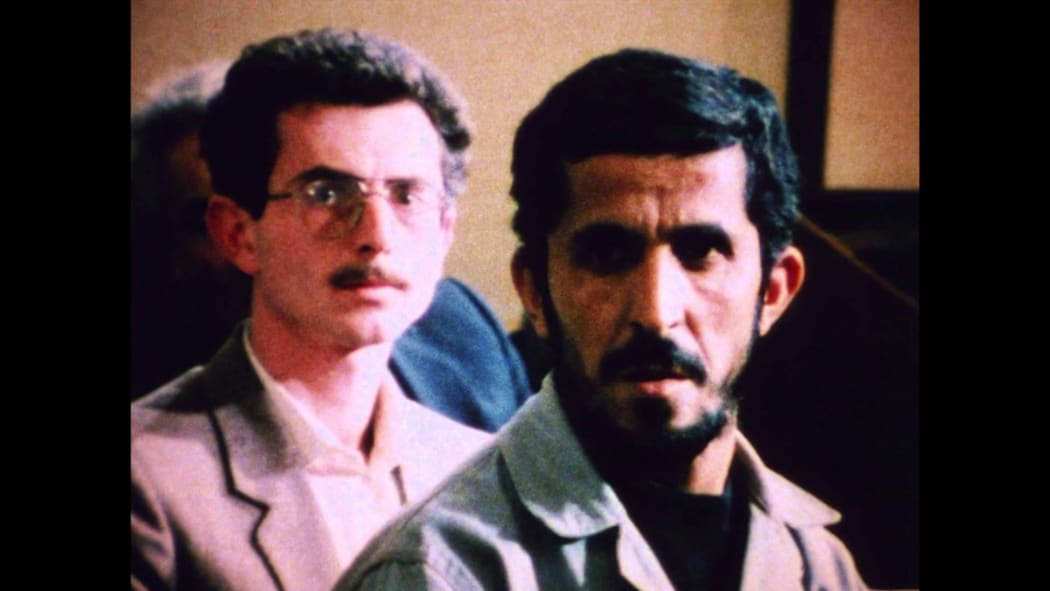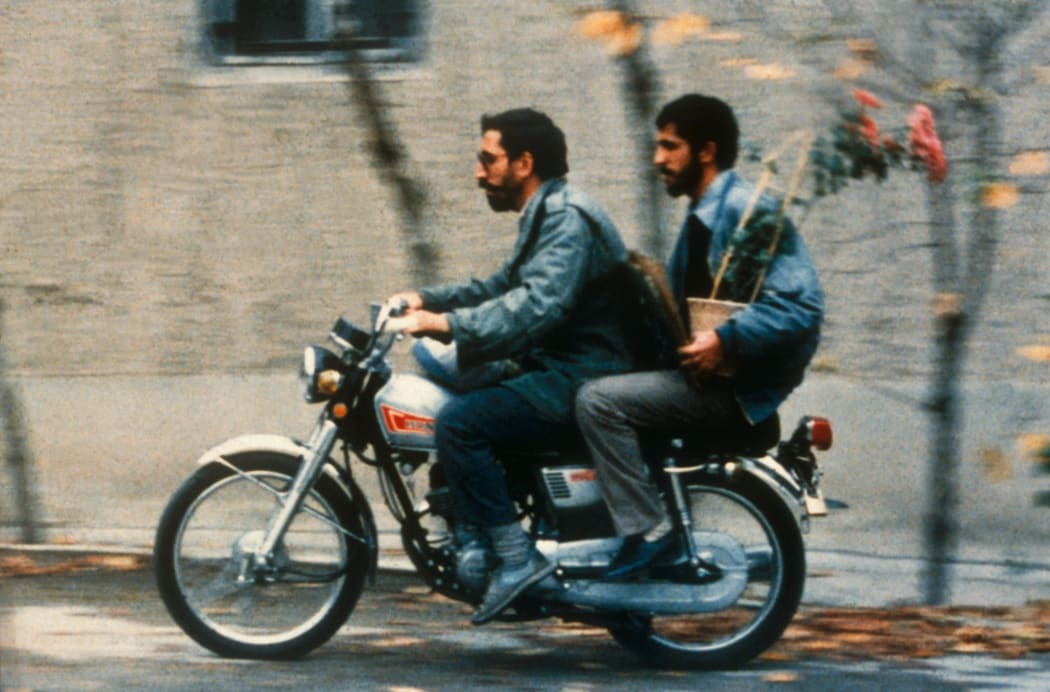Abbas Kiarostami’s 1990 pseudo-documentary Close-Up is a masterpiece of empathy, says Dan Slevin.

The real Hossain Sabzian recreates his notorious impersonation of the director Mohsen Makhmalbaf in Abbas Kiarostami’s Close-Up. Photo: Janus Films
If there’s a more interesting national cinema than that of Iran, then I don’t know one. Through all the upheaval of the past fifty years, Iranian filmmakers have not only told interesting stories, challenging the political and social status quo at personal risk, but they’ve also often been able to discover entirely new ways of engineering films – new ways of seeing and new ways of telling – an adventurousness that’s justified by an enthusiastic cinema culture that’s over 100 years old.
In recent years the flag for Iranian cinema has been flown by Asgar Farhadi who has won two Foreign language Oscars – A Separation and The Salesman. Jafar Panahi’s films – some more traditional like Offside and Crimson Gold but, more recently, necessarily – due to his house arrest and 20-year ban from filmmaking from the authoritarian regime – like This is Not a Film and Taxi.
Then there is the Iranian diaspora in Europe and the United States: Marjane Satrapi (Persepolis), Ramin Bahrani (99 Homes) and Ana Lily Amirpour (A Girl Walks Home Alone at Night).
But the two biggest hitters in Iranian cinema internationally are Mohsen Makhmalbaf and the late Abbas Kiriostami. Makhmalbaf is in exile in Paris and still making films but Kiarostami passed away in 2016. Kiarostami’s Close-Up (1990) is 43rd-equal (with Gertrud, Playtime, Some Like It Hot and Pierrot le fou) in the Sight & Sound Top 50 Films of All Time list compiled in 2012 – and which is the basis for this project – and it is another of the films in the list that, on the surface, seem like they would only appeal to critics and academics.
Inspired by a notorious-in-Iran true story, Close-Up is about a down-at-heel young Tehran man who pretends to be the great director Makhmalbaf in order to win the favour of an upper-middle class family. The ruse is swiftly discovered and the family believes that his intention was to steal but, at his trial, a more complicated picture emerges – of a poor man who wanted to be an artist, a lover of cinema who for economic reasons struggles to even feed his family, of a someone who wanted to be a somebody, somebody for whom cinema itself speaks like the finest poetry.

Sabzian at his (real) trial, questioned by director Kiarostami. Photo: Janus Films
Kiarostami reads of the affair in a magazine and persuades the accused, the judge and the plaintiff family that he should be able to film the trial. More than that, he contributes to the (informal by Western standards) proceedings with his own questions and interruptions.
But that alone isn’t enough to make Close-Up both groundbreaking and affecting. After the trial, he persuades all the parties to portray themselves in re-enactments of crucial scenes from the story – the initial meeting between imposter Hossain Sabzian and Mrs. Ahankhah on a bus, an awkward breakfast at the Ahankhah’s house on the day Sabzian is caught and arrested, the prelude to the arrest in the form of a long taxi ride with the journalist, two conscripted soldiers and an amused taxi driver who used to be a fighter pilot.
The resulting film is a masterpiece of empathy as well as an amused portrait of a nation that seems to be in a state of confusion about itself. People in the film are rarely as they seem. The two Ahankhah sons, for example are trained civil engineers but one works in a bakery and one is unemployed.

After his sentence, Sabzian is picked up by the real Makhmalbaf on his motorbike so he can visit the Ahankah family and apologise. Photo: Janus Films
Close-Up isn’t the easiest introduction to Iranian cinema and Kiarostami didn’t get much easier, even when he shot his final two films in the west. Certified Copy and Like Someone in Love require a great deal of their respective audiences. If you want to dip your toes into the cinema of Iran, I’d start with Panahi’s funny and sweet Offside (about a bunch of soccer-mad teenage girls trying to watch an international soccer match despite women being excluded) or anything by Farhadi.
Close-Up is not available on a streaming service in New Zealand, but you can find imported DVDs at stores like Aro St, Alice in Videoland and Videon. You’ll need a player that can cope with all zones.
The Sight & Sound Top 50 project is intended to encourage more attention to the greatest films of the past – in the same way we still read old books and listen to old music we should be appreciating old movies.

